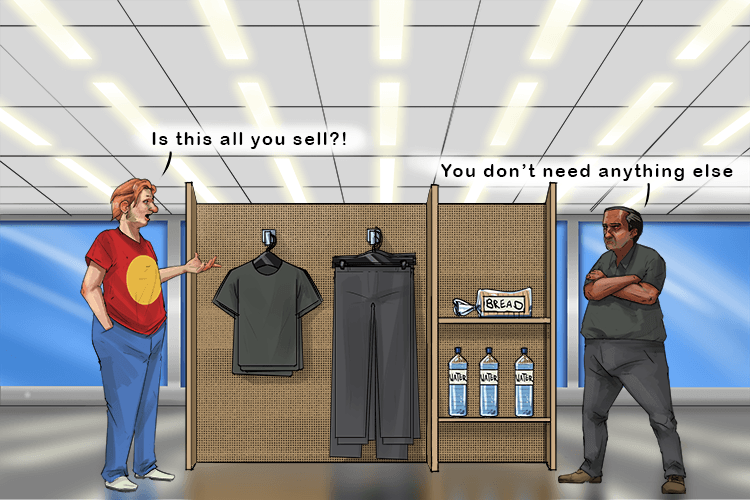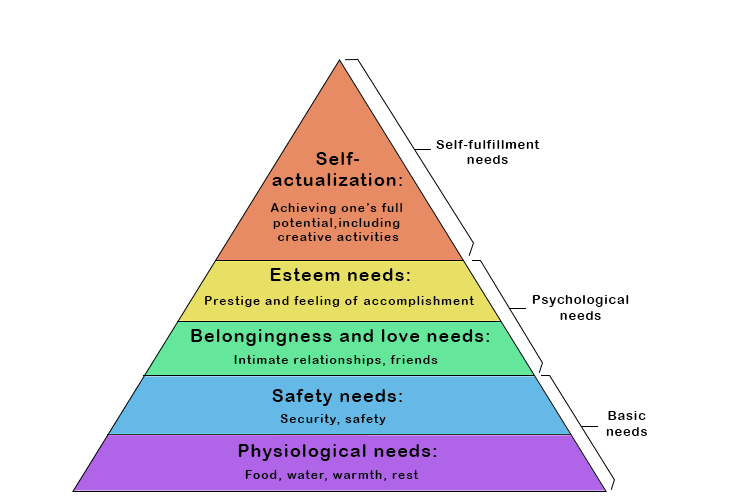needs – human necessities essential to survival; clothing, food, shelter, warmth and water
To remember what needs means use the following mnemonic:
This shop only sells products that everyone needs (needs) and that are essential to survival.

Products that apply to basic human needs often require minimal marketing or tremendous amounts. Some companies may have what can almost be considered a monopoly over an essential product and thus require very little marketing to persuade people to buy from them. An example of this is Thames Water, a private company that provides water to over 15 million people in the greater London area. Households cannot switch suppliers, so they are forced to purchase the essential human need of water from them. Other needs are sold in highly competitive industries. Staple foods such as rice, bread and milk are sold by producers who put vast amounts of money into promotion in an attempt to persuade consumers to purchase from them rather than one of the many other companies selling the basic foods.
Products classed as needs can be seen to occupy the lowest and most basic level of Maslow’s hierarchy of needs, which maps different human motivations from the most basic needs at the bottom to the deepest desire and wants at the top.
Maslow's Hierarchy of Needs

Products that make up this most basic level include:
- Water.
- Shelter (housing).
- Clothing (basic clothing to keep warm).
- Plumbing (toilet and sewage system).
- Food (staple foods that provide essential nutrition).
- Medical products (basic products that can be used to treat illness and injury such as antibiotics and bandages).
- Hygiene products (used to keep the body clean and free from infection).
The difference between a need and a want is that a need is necessary for a human to live and function, and a want is something that can improve quality of life. Needs can become wants if they develop into products that aren’t strictly necessities, for example, premium sparkling water or designer clothes. These may fulfil basic needs (keeping you hydrated and keeping you warm), but they’re also aspirational status symbols that improve self-esteem.




